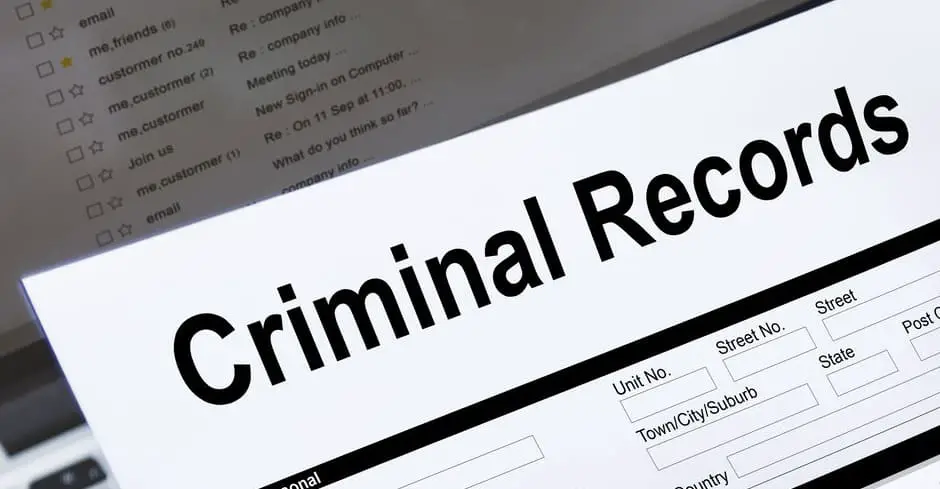Does Your Criminal Record Clear After 7 Years? Do you have a criminal record that is damaging to your situation? If so, you are not alone. There are currently about 20 million people with felony records living in the United States. Many of these individuals regret their decisions to commit criminal offenses in the first place. But, once the crime has been done, there is a way to take it back. A criminal offense can plague your entire life. It can keep you from getting a decent job, a medical license, a new home, and a college degree. The only hope these individuals have is that their criminal records will disappear after so many years. Is this remotely possible? Find out by reading the article below.
How Long Do Criminal Offenses Stay On Record?

While some people are under the impression that they can commit a criminal offense and it will be forgotten over time. Unfortunately, this is never the case. Have you ever went into a restroom at a rest area, courthouse, or other government entity? If so, you have probably witnessed firsthand the visual warnings of committing a crime. These warnings read “a criminal record will haunt you the rest of your life.”
These warnings are not only posted in government facilities but also in retail stores, supermarkets, and pharmacies. If you have a criminal record, you should be able to sympathize with these warnings. If not, you are still in denial.
What do these warnings actually mean? They are telling you that a criminal offense will never go away. It will remain with you until the minute you take your last breath.
Misdemeanor – What Is It?
A misdemeanor is a criminal offense that is considered “minor” or “petty”. These offenses generally do not carry long prison sentences but they almost always carry monetary fines. Just because a misdemeanor is considered “petty” does not mean it will vanish from your record after seven years. In fact, it will always be on your record unless your request to have it expunged or sealed.
There is a long list of criminal charges that are considered petty. These charges include DUIs or DWIs, assault, battery, theft under $300, violation of gun laws, perjury, and larceny. Some drugs, guns, and theft offenses are not classified as misdemeanor charges.
Recommended: Do Felonies Show Up After 7 Years?
Felony – What Is It?
A felony is a criminal offense that is considered to be very serious. False imprisonment, kidnapping, murder, motor vehicle rape, arson, burglary, and fraud. Drug and theft charges on a serious level can also be classified as felonies.
In most cases, the punishment for felony convictions is incarceration. The more severe the crime, the longer the incarceration. For example, the penalty for grand larceny felonies is about five years of incarceration. Whereas, the penalty for felony murder is almost always life in prison.
How To Get A Pardon?
Just about every ex-convict would love to have their criminal records vanish. But, as mentioned above, once you are convicted of a crime, the conviction will remain on your criminal record for the rest of your life. What are your options in this case?
Well, you have several options to choose from. These options include expungement, record sealing, and pardoning. Expungement and record sealing was mentioned previously in this article. So, you should know how these processes work. Pardoning, on the other hand, is a term utilized to describe one of the highest forms of expungement.
To be pardoned of your criminal convictions, you must have connections with a government, secretary of state, the President, or another government official with the authority to do so. The official will pardon your criminal offenses. However, this is not always enough to have your criminal offenses removed from your record. It must be part of the pardon, which is not always the case. If you have a close connection with one of the above officials, you should try to get the expungement included as part of the pardon.
What Do Potential Employers See?
When applying for a job, there is a good chance that the employer is going to run a background check on you. This can be frustrating since you know you have a criminal record. You know that the company is going to learn about your felony from several years ago. You’ll have to explain yourself and you’re worried that this is going to prevent you from getting the job of your dreams. Well, you should know that the employer may never see this information.
Will the employer see your felony from 12 years ago? First, you should know that the Fair Credit Reporting Act or FCRA says that felony arrests may be reported on background checks for a maximum of 7 years after you have been released from prison. If you not convicted of the crime, the employer will not be able to find this information after seven years. However, having a felony conviction is going to make things much more difficult for you.
For those with felony convictions, the employer can always find this information. When asking for a background check, the employer can decide how far back they wish to go. If they go back 20 years, they’ll see anything that happened 20 years ago. So, there is always a risk that the employer is going to find out about your felony conviction when you were much younger.
However, you can hide this information by expunging it from your record or having it sealed by the court. This is a good way to prevent potential employers from using your criminal history against you during the hiring process.
Always There
Ultimately, your felony conviction will always be on your record. Getting it expunged or sealed is the only solution. Just remember that some states have laws that make it harder for employers to turn away felons. Some states report felony convictions regardless of the year as well as a not guilty verdict. This includes states such as Tennessee, Utah, West Virginia, Wyoming, Oregon, Rhode Island, Arizona, and Alabama.
Some states prevent reports from containing information about not guilty verdicts. This includes California, Kentucky, Alaska, New York, Michigan, Hawaii, and others. Furthermore, states have more complex laws governing this activity. In California, employers hiring someone who will receive a salary of over $125,000 can look for felonies as far as 10 years ago. In Colorado and Texas, the 7-year limit is invalid when the salary is over $75,000.
How To Get A Conviction Removed From Your Record

Once you have a felony added to your record, you’re going to face an uphill battle. You’ll need to work diligently to ensure that you’re able to overcome this problem so you can obtain a good job and earn money for your loved ones. While many crimes will no longer be reported after 7 years, many felonies will be. Therefore, you need to take steps to have the conviction removed from your record. Once you’ve done that, you’ll have a much easier time acquiring a decent job.
There are two ways to have the conviction removed from your record. Below, you’re going to learn about both methods.
Expungement
First and foremost, you may want to expunge the conviction from your record. This tends to be the most common way s to remove it. However, it will still take a lot of time so it is not going to happen overnight. What is expungement? This is the process of asking the court to remove criminal convictions and other problems from your record. If you expunge your conviction, it will be removed from public view but it is still there.
Therefore, some agencies will still be able to access this information. Nevertheless, expungement is one of the best ways to get rid of this information. Expungement can be expensive and time-consuming but it’ll be worth it. To get started, you’ll need to make sure that your felony can be expunged. Then, you must collect your records and fill out the relevant forms.
Once you’ve got the forms notarized, you’ll want to submit them and schedule a hearing. Again, the process can be extensive so you’ll need to be prepared to work on this project for a long time.
Sealing
Alternatively, you’ll want to consider sealing the criminal record. On average, removing the information by sealing it is easier and quicker. However, you’ll need to wait until a specific period has passed. A lot of convictions can be sealed after 3 to 7 years. For misdemeanor convictions, you’ll need to wait at least 3 years before having the conviction sealed. Once that time has passed, you can have it sealed by sending a letter to the court or attending a court hearing. If you’re dealing with a felony conviction, you’ll have to wait 7 years.
If you are working with a case that has been dismissed or dropped by the prosecutor, you can seal it much earlier. In this situation, you will be able to seal the record without waiting. You can do so in court or by mail.
Never Gone
While you can prevent the public from viewing your criminal record, you have to understand that this information is never gone. Federal agencies and others may still be able to access this information. Still, you shouldn’t let this hold you back. By taking advantage of expungement or sealing, you will be able to increase your chances of getting a job. In most cases, sealing the record is easier and quicker than trying to expunge it.

Hi My husband was convicted for a crime 5 years for the past seven years, we are struggling to clear this record. He served this outside jail and he is stuggling to receive a public drivers licence for passengers.Please assist in this.